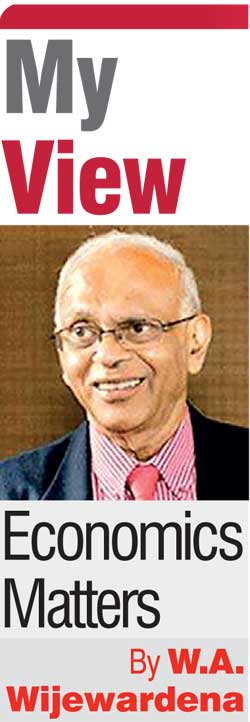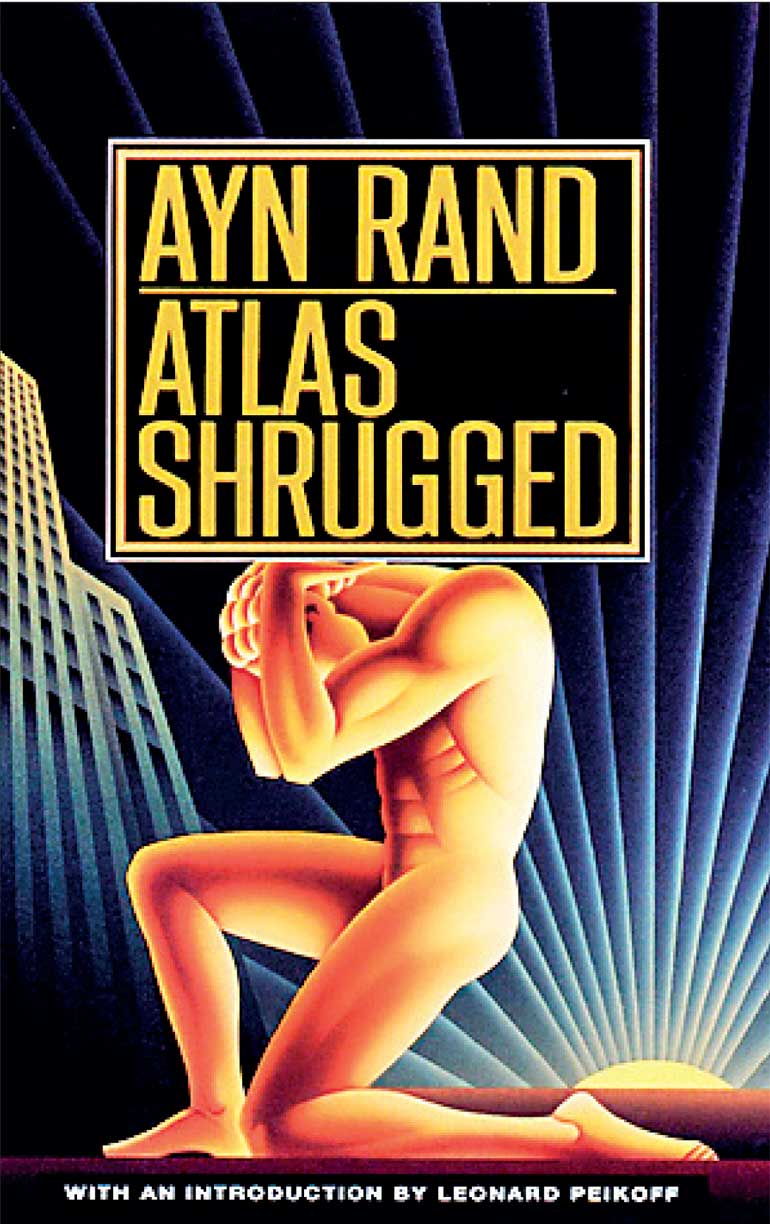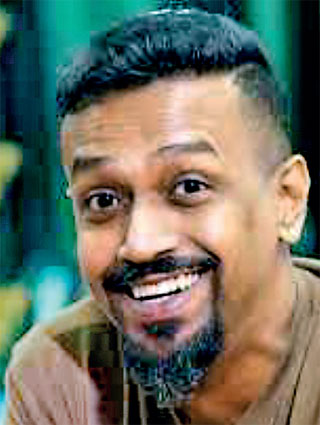Sunday Feb 22, 2026
Sunday Feb 22, 2026
Monday, 30 January 2023 00:12 - - {{hitsCtrl.values.hits}}
|
 Social illnesses from a comedian’s mouth
Social illnesses from a comedian’s mouth
Comedian Hasalaka Thushara, known as Hasa, in a recent performance has made an incising comment on Sri Lanka’s contemporary society (available at: https://youtu.be/SeocA0_qSGI). He has said that the present Sri Lanka societal model is characterised by the shameful mentality of people who believe that others should provide for them for a living.
Free education is paid for by people, including recipients
Take for example education. Everyone demands that education should be provided to them free of charge. Government in fulfilment of this desire of people taxes all of them and provides education facilities without charging any tuition fees. Both parents and students seem to be happy about this arrangement ignoring that they collectively pay for it. After they get a university degree, they then demand for a job. After the government gives them a job, they demand that they be given their perks without having to make any contribution on their part. Though Hasa did not refer to it, money for those perks is also provided by them collectively by paying taxes today, paying taxes in the future if the government part-finances it by borrowing and paying an inflation tax if the government finances it by printing new money.
Then, this burden placed on people starts ballooning because those who run the free education enterprise are driven to increase the costs by raising their own perks as presented by economist William Niskanen in his economic theory of bureaucracy in a pathbreaking book published in 1994 under the title ‘Bureaucracy and Public Economics’. As a result, people ask for more and more free public services, but at the end, it is they who pay for those services. This is an illusion from which people are suffering. They believe in a free lunch, but that lunch is being paid for by them. Thus, in the process everybody, including the government, loses.
 Farmers too pay for subsidies
Farmers too pay for subsidies
Another example cited by Hasa is paddy farming. Farmers demand free water, free fertilisers, free inputs and free everything. Governments also oblige them by providing those inputs free of charge or partly subsidising them. That is a cost to all the citizens and, therefore, farmers too pay for what they get. Once they produce paddy with those supported inputs, farmers further demand that the government should buy their produce too. The government sets a minimum guaranteed price for paddy and the private sector paddy millers do not want to buy paddy at that price. Since there are no buyers of paddy at that guaranteed price, the government, as the last resort, buys that output by charging all citizens through current taxes, future taxes, and inflation taxes.
When the price of rice at that guaranteed price of paddy is too high for consumers, the government decides to sell it below the cost of production to relieve the consumers. But that loss is also passed on to all the citizens by the same process of increasing the total government expenditure. As a result, all citizens end up paying twice for the folly of the government. Consequently, at the end, everyone ends up in losing. What is Hasa’s message here? Wherever and whenever the government has intervened in the economy, it makes such a mess that everyone, including the government, ends up in losing.
 |
| Ayn Rand |
 |
| Comedian Hasa
|
Mentality that world owes a living for Sri Lankans
Why does this happen? Hasa says that it is due to the mentality of people that they have a right to get everything freely without having to make any contribution for same. Economists call this ‘dependency syndrome’. When people are afflicted by this syndrome, they believe that the whole world owes a living for them. It may be within a country, the poor depending on the rich, both the rich and the poor on the government, or one section of society on another. At the global level, it may be one nation on all other nations in the world. But is dependency an evil? Yes, if it is a one-way process. But if it is two-way, meaning that dependency is interdependent and interconnected, then, it is a must for the sustenance of economic systems. In such a system, the poor will depend on the rich and the rich on the poor. Similarly, at the global level, the poor nations on the rich nations and the rich nations on the poor nations.
What is bad is the dependency syndrome in which it is only one way: one depending on another without contributing in return for the other person’s sustenance. In that case, pretty soon, the system will collapse on itself. This view of the economists is compatible with what Hasa said in his comedian presentation. But he further says that everyone in society does not harbour this view. There are some who make a genuine contribution to society and those who live on free donations simply live like parasites on their bodies. But the problem, according to him, is that those who have allowed those parasites to suck their blood do not make any protest against it. They are silent on this injustice as if they have been frightened by the loud voice of those parasites. As a result, this one-way dependency prospers till both parties are no more.
The person who gives sanctuary to the parasite will disappear from the scene by exhausting all his resources and the parasite because there is no more a host to suck on such resources. Hence, it is in the interest of the continuation of a system if those who create wealth rise against those who suck on them and put an end to this dependency system.
Can canine friends go to work and maintain humans?
So, according to Hasa, it is a world of a few who works productively and the majority living on their products. But what will happen if the roles are reversed? Hasa elaborates this point with a parable. Humans have domesticated their canine friends about 10,000 years ago, and since then, to maintain them, humans had been working hard. Suppose the role is reversed and canine friends go to work and humans remain at home. Can this society sustain itself? Possibly not because those canine friends are unable to produce the output productively as the humans do. The canine friends lack both the mental and physical capacity to do so.
This was demonstrated by the psychic movie director Alfred Hitchcock, as reported by the management Guru Peter Drucker, in an experiment. In the experiment, there were two in front of a typewriter on the stage, one human and another a chimpanzee. From a distance, both appeared to be typing. But what the chimpanzee had done was just pressing the keys of the typewriter incoherently. At the end, the human had produced a report, while the chimpanzee a gargled paper. So, canines going to work, while humans remaining at homes will not produce any fruitful output. So, what is to be done is for humans to work for canines but canines to appreciate and recognise the good work done by humans. If canines start demonising humans, both humans and canines will disappear. Canines losing a benefactor and humans missing a good entertainment agent.
Ayn Rand: If Atlas is mistreated, he will shrug himself
The question which Hasa has raised here had been raised by the Russian American writer and philosopher, Ayn Rand many years ago. Rand has used this issue as the theme of her classical novel ‘Atlas Shrugged’ released in 1957. Why Atlas as the theme of the novel? In Greek mythology, Atlas is said to be holding the world on his shoulders so that all others can enjoy life without being burdened by its weight. Atlas is synonymous with the creative people in the world. He is being exploited by others and one day, according to Ayn Rand, he decides to strike back or shrug himself. When this happens, the whole world comes to an end because the productive people no longer make their contribution. The others who had depended on Atlas perished for lack of continuous inputs for their sustenance.
Hence, the worst thing that can happen to a society in which unproductive people continue to exploit the productive people and make a living is the possibility of Atlas shrugging himself.
Ayn Rand in Atlas Shrugged warned in 1957, as Hasa had done recently, the contemporary society that it is heading toward the total disaster if unproductive people continue to rule the world. The novel is a probe into the contradictions in the modern society with a view to identifying the disturbing elements. Based on the first principles of her philosophy, objectivism, the novel explores human behaviour and brings to focus the dangers of tolerating the voices of those so called mass leaders.
Second-handers living on prime-movers
Thus, Atlas Shrugged depicts the society as one depending on people who think and innovate things. They are called ‘prime movers’ according to Rand’s terminology. Everyone else, called ‘second handers’, is piggy-riding on them. It is similar to Atlas holding the burden of the world on his shoulders. Ironically, prime-movers are not appreciated by second-handers and, they, organising themselves into mass movements, try to control and regulate the work of prime-movers. The result is all types of anti-monopoly, pro-public interest and pro-public good laws that inhibit the creativity of prime-movers. When things become worse and cannot be tolerated anymore, prime-movers decide to strike. The battle that follows between prime-movers and second-handers leads to a situation where Atlas voluntarily shrugs himself. At that point, the modern society collapses.
‘Punish me by refraining from buying my product’
In the novel, Hank Rearden, inventor and entrepreneur, is tried by the state (on behalf of and for the perceived good of second-handers) for violating a regulation that had barred him from selling a metal he had invented. The state (and therefore, the second-handers) believes that the fruits of his thinking belong to the people at large. Therefore, for public good, he is prevented from selling it in the market for private gain. Rearden fights back and the ensuing legal battle provides a forum for him to express his views on the whole issue. ‘Who is the public? What does it hold as its good?’ he questions the judge. When the judge says that they have a right to prevent him from making profits, Rearden counter-argues that people have a right to prevent him from making profits by not buying his product. Any other method, he says, is equivalent to looting with the blessings of legislators and the state.
‘I won’t pay more than my workers are worth to me’
Dismayed by the adverse newspaper reports, Rearden declares in the open court ‘I work for nothing but my own profit – which I make by selling a product needed by men who are willing and able to buy it. I do not produce it for their benefit at the expense of mine, and they do not buy it for my benefit at the expense of theirs; I do not sacrifice my interests to them nor do they sacrifice theirs to me; we deal as equals by mutual consent to mutual advantage – and I am proud of every penny that I have earned in this manner. I am rich and I am proud of every penny I own’. He then delivers a severe blow to judges. ‘I shall answer all the questions you are afraid of asking me openly. Do I wish to pay my workers more than their services are worth to me? I do not. Do I wish to sell my product for less than my customers are willing to pay me? I do not. Do I wish to sell it at a loss or give it away? I do not. If this is evil, do whatever you please about me....I am earning my own living, as every honest man must’.
The novel also puts to rest the popular belief that wealth comes only from material sources. Wealth, as depicted in the novel is more of intellect-based than material-based. If there is no intellectual contribution, material will simply sit idly. But the society places bars on the intellectual developments in the guise of making good for the society. The result is the prime-movers striking against it and Atlas gradually shrugging himself.
Don’t mistreat Atlas and force him to shrug himself
Though Ayn Rand gave this warning to the contemporary society some six decades ago, there has not been any visible change in the governments had approached the business and enterprise or the people coming to appreciate what entrepreneurs had been contributing to their wellbeing. This is evident amply in Sri Lanka’s case. The politicians who have failed in every respect have chosen the easy path of maligning the businessmen for the maladies in society. The longstanding such malignment has been the castigation of leading rice millers as a group that operates a mafia system. Rice is in short supply because there is no sufficient production. That has been due to the bad policies of the politicians themselves.
But this mafia story is easily bought by the people, including the small millers, because those leading rice millers are large and enterprising commanding superiority. As a result, the politicians have been able to set the small millers against the large millers in addition to setting the public at large against them. The latest such conspiracy story has been levelled against the egg producers. At the Committee on Public Enterprise meeting held in Parliament recently, those large egg producers have been branded as a mafia that rule the entire poultry industry.
Both Ayn Rand and Hasa have warned us against this cheap tactic of maligning entrepreneurs for the silly mistakes of politicians.
(The writer, a former Deputy Governor of the Central Bank of Sri Lanka, can be reached at [email protected].)